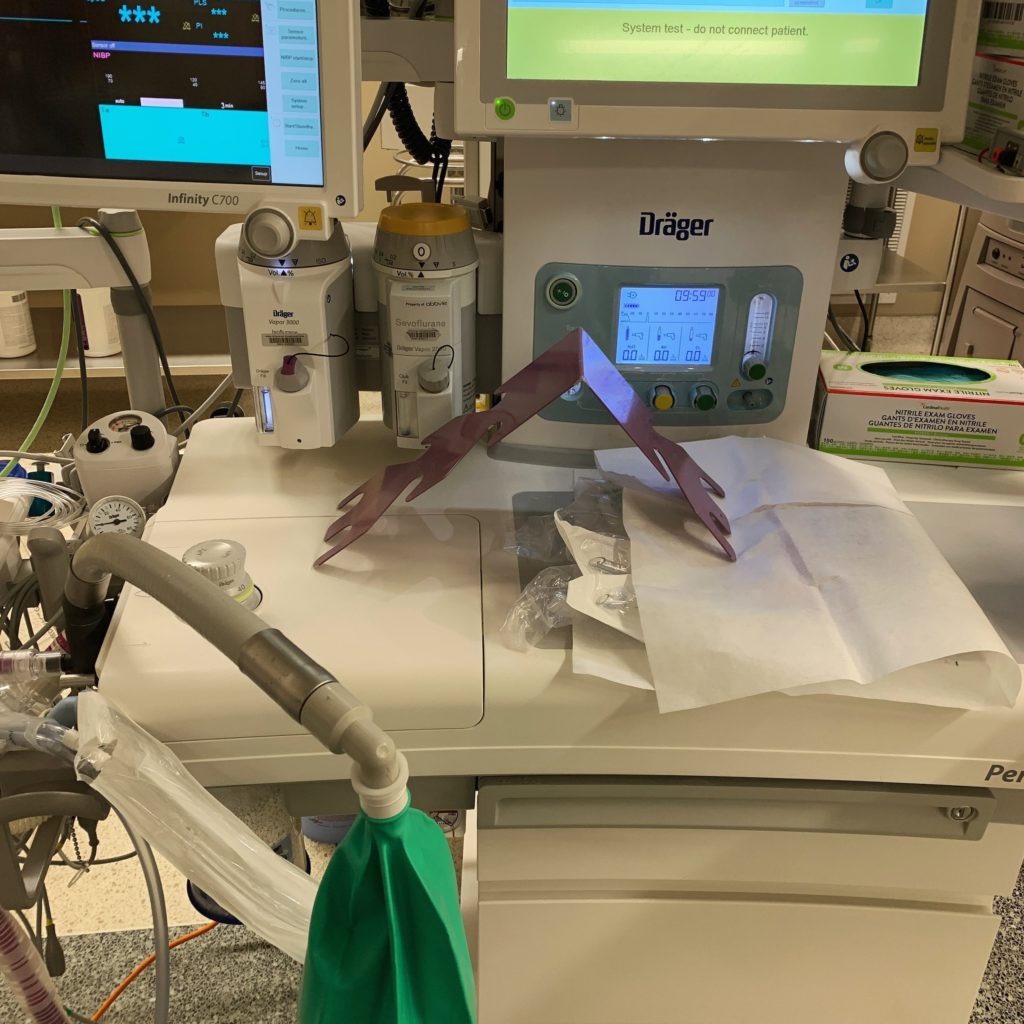Working “behind the curtain” in the operating room has given me insight about the incredible commitment we as anesthesiologists have to patient safety. In the course of a routine cardiac surgery, I administer a plethora of medications to maintain the anesthetic and hemodynamics but also make crucial decisions with my surgical colleagues involving your care. Does your valve need to be repaired or replaced? Should we address the tricuspid regurgitation? What’s the significance of new mitral insufficiency after coming off cardiopulmonary bypass? Does the mechanical circulatory support (MCS) device function appropriately? What pressor/inotrope infusions are the most appropriate for the current situation? Can we safely extubate you now or should we wait? Do we need to go back on bypass and rearrest the heart? What, when, and how much should we transfuse? The list goes on!
Despite this important role, how often have you been able to pick your anesthesiologist? Do you have any idea who will be delivering your care and what their credentials/training are? These considerations matter!

In our current system, anesthesiologists are largely intraoperative consultants. Sometimes they follow a surgeon. Other times they are assigned to a discipline like cardiovascular surgeries. The United States utilizes different kinds of providers (anesthesiologists, anesthesiologist assistants, and nurse anesthetists) to meet anesthesia needs in various settings; however, the general public often does not understand the difference or the concept of “supervised” anesthesia in a team-based model. In addition, most laypeople don’t know that anesthesiologists are physicians who have gone through extensive training in college, medical school, residency, and many times fellowship(s) to take on clinical roles which extend beyond the operating room. We are clinical decision-makers from very early in our training, and take on a great deal of autonomy and accountability from the get-go.
Working in academics, I sometimes do my own cases, work with a resident, or cover two different operating rooms simultaneously with residents in each one. Residents are doctors who are still in training and work closely with an attending physician to provide anesthesia care. In some contexts (especially seen in private practice), anesthesiologists can also supervise anesthesia assistants and nurse anesthetists. I give my patients a clear rundown of the team that will be taking care of them, their roles (ie, attending, resident, medical students, individuals who are shadowing, etc.), and possible handoffs that will occur intraoperatively. Many of my patients understand the indication for their surgery, but oftentimes, they are very anxious about receiving anesthesia, post-operative pain, “not waking up”, and their overall recovery. I use my training as a doctor in both the OR and ICU to “paint the picture” of what they can expect intra and post-operatively to alleviate the fear of the unknown and answer questions along the way!
When considering your surgery, it’s important to inquire about your anesthesia team’s members, roles, and credentials. These individuals are largely responsible for safety considerations over the course of your operation, so I can’t stress how important they are to your perioperative care!






I have also had a few surgeries and I remember this one time in particular when coming out of anesthesia I told the nurse that I could catch a breath and she said your O2 saturation looks great but it was the scariest thing ever because my chest wouldn’t rise like I couldn’t catch a good breath and there was no one to be found and she just said is normal.
Thanks for sharing, Katherine! Although I’ve never had anesthesia myself, hearing stories from patients is often times very eye-opening!
I have had quite a few surgeries in my life and I have picked my anesthesiologist when I knew them, but when I don’t, I haven’t been able to. In fact, at my last surgery (microforaminotomy) at the medical school teaching hospital, I wasn’t even able to find out who it would be or visit with them prior to a hour before surgery. The system definitely doesn’t promote any kind of relationship with the anesthesiologist.
Thanks for sharing your experience, Gordon! Best wishes!